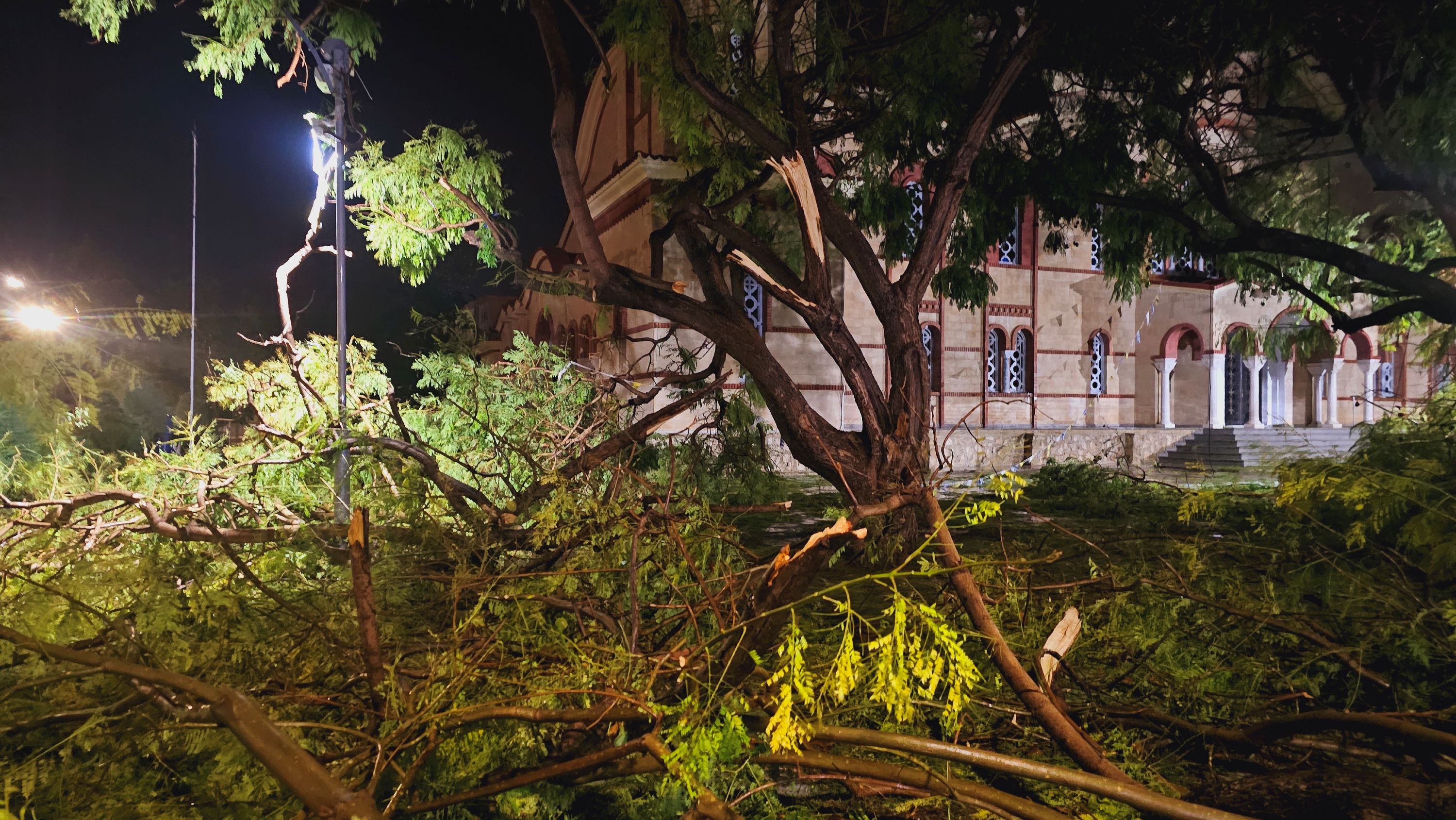
Large swathes of Cyprus were battered by storms on Saturday afternoon and Saturday night, with strong winds felling trees and heavy rain sending water cascading down roads across the island.
Electricity was cut off in 13 villages and suburbs in the Limassol district on Saturday, with some areas not being reconnected until the early hours of Sunday morning.
Meanwhile, in the Paphos district village of Konia, the fire brigade were called to rescue two people who were trapped inside vehicles on a flooded road, while it is estimated that 40 properties in the Paphos district suffered flooding.
Elsewhere, metal objects were blown onto the motorway linking Paphos and Limassol, and landslides were reported near the villages of Pedoulas and Kampos.
Paphos mayor Phedonas Phedonos conducted a tour of the town’s flooded areas on Saturday evening and expressed relief that the storm had only lasted for 45 minutes.
Otherwise, he said, the situation would have been “tragic”, though he did also note the fact that the town is built onto a hillside as a mitigating factor of the storm’s impact.
The weather also impacted the day’s football, with the match between Apollon and Apoel at Limassol’s Alphamega Stadium being delayed for over two hours due to the pitch being waterlogged, before the sides eventually played out a 0-0 draw.
The match between Pafos FC and Omonia Aradippou was delayed for a day, with the pitch at the town’s Stelios Kyriakides stadium also waterlogged, and a tree having fallen in the car park.
Later on Saturday evening, the civil defence issued a list of recommendations for people to deal with storms.
They said people should ensure that the drains outside their homes and places of work are not blocked, and that the gutters on their properties are also working properly.
They also recommended that people who have basements at risk of flooding should install an automatic water pump and remove valuables and other expensive equipment from their basement.
Those who have gardens should, where possible, leave some of the plot as unused soil so that as much rainwater as possible can be absorbed.
Additionally, they said, objects which are “likely to be swept away”, such as water tanks and water heaters, should be secured, and any holes in outside walls should be filled in.
They added that those who live in areas at risk of flooding should place sandbags in front of doors and other openings.
In the event of heavy rain, they said people should “limit their movements” and avoid staying in underground areas.
They added that people should not enter flooded roads and should abandon their car if it becomes immobilised due to floodwater.
They also said people should stay away from power lines and not approach areas where landslides have occurred.


